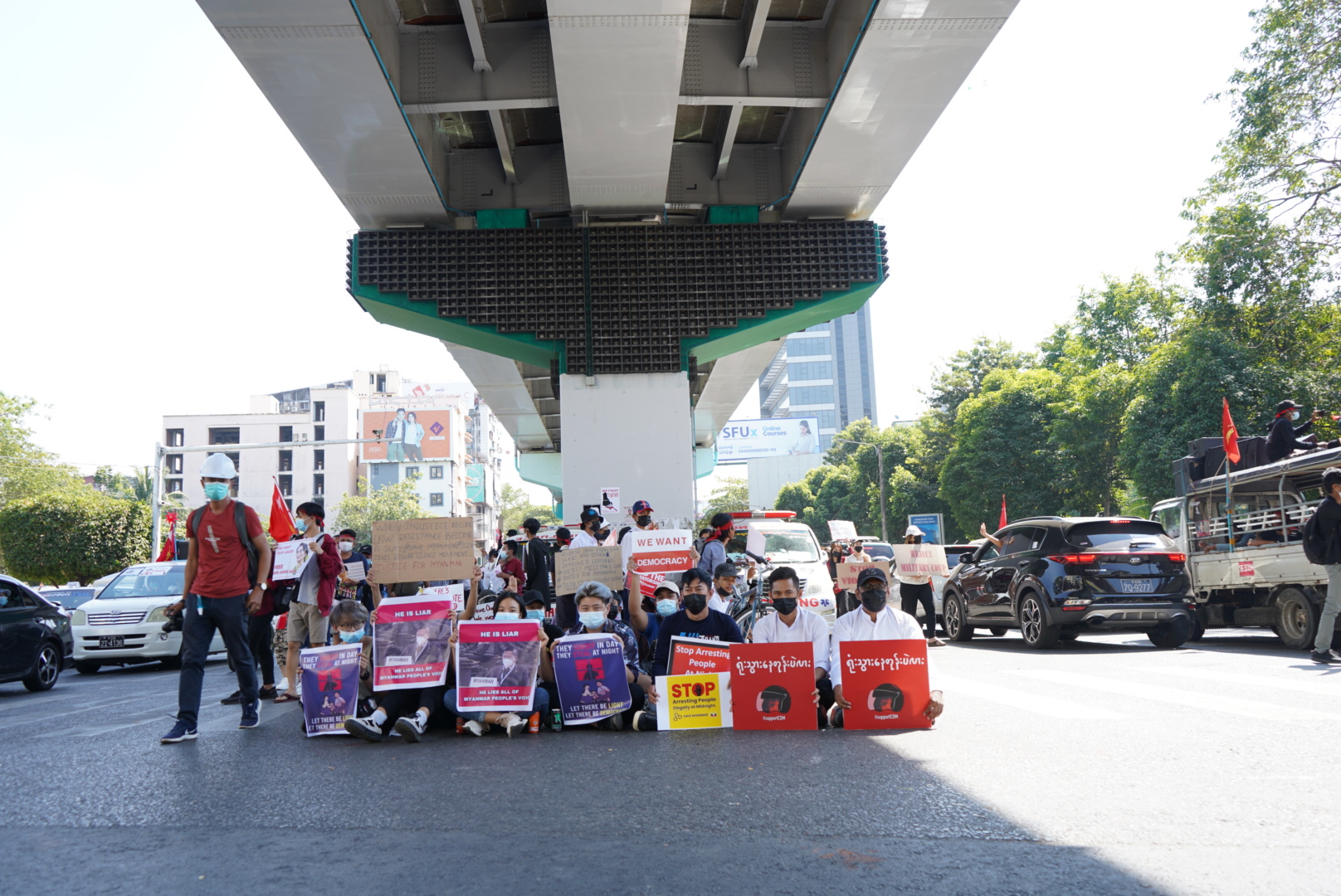As anti-coup protesters in Myanmar continued to march against the military rule on Sunday, they defied brutal military suppression by posting photos of Easter eggs painted with anti-coup slogans on Facebook.
Although Facebook has been banned in the country since February 7, a week after Myanmar’s military seized power, many Burmese users have continued to use the platform to express their support for the anti-coup movement and stay up to date on current events. Now, Facebook has allowed Burmese internet users to add one more safety protocol by securing their accounts, so users who aren’t their friends will not be able to access their profiles.
On March 31, Facebook introduced the new feature that allows Burmese users to lock their profiles as well as adjust privacy settings, so non-friends cannot enlarge, share, or download the user’s profile picture and cover photo or access content that the user has posted on their timeline.
“Given the evolving situation on the ground in Myanmar and the conversations we’ve had in recent weeks about security concerns, including with activists, journalists, and civil society groups, we understood that there was a need for additional safety features,” Facebook said in a blog post on March 31.
A protestor who prefers to go by Alexia told KrASIA that the new feature has been particularly helpful to her, as she posted lots of anti-coup content on Facebook. Alexia added that the social media giant should enable a new function that allows friends or family members to report and secure the accounts of users who are apprehended by the police.
“Once a user is caught or detained by the police, their close friends could report their account to Facebook to have the account temporarily locked. This would be particularly helpful to many protestors in Myanmar who risk their lives on the street protesting against the junta regime, and help prevent the police from collecting evidence on their social media account,” Alexia explained.
The news comes at a time when the junta has throttled communications by blocking mobile internet services, shutting down all public WiFi services, and now cutting wireless broadband internet services, as protestors continue to take to the streets and defy the brutal crackdown by security forces.
As of Sunday, at least 564 people have been killed, and 2,667 arrested, charged, or sentenced during weeks of violent crackdowns, according to data published on Sunday by local human rights group Assistance Association for Political Prisoners (AAPP).
